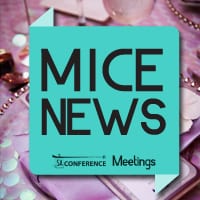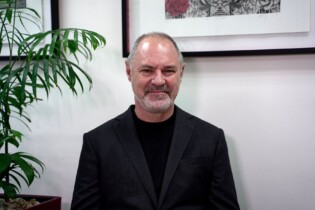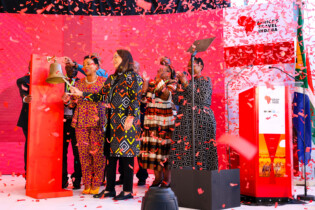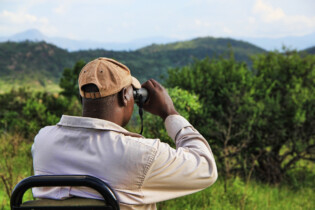The fourth annual Sports and Events Tourism Exchange (SETE) Conference and Exhibition, that took place at the Durban International Convention Centre (ICC), over two days 29 and 30 October drew to a close with the Commercial Director of Thebe Reed Exhibitions drawing some key conclusions from the two days’ robust discussions and debate.
The main take away key points that emerged when considering bidding and hosting events were:
- Address the legacies and social development in a long-term strategy to benefit the whole country.
- Collaborate with KZN on plans to eradicate poverty. Legacy is also about the regeneration of impoverished areas.
- Focus on building the image of a destination.
- Ensure national relationships. The whole country should be behind a bid to harness national support.
- Leverage the presence of arts and culture elements to enhance the experience of a sporting event.
- Involve and consult with a wide range of industries and sectors well in advance to gain an all-inclusive buy-in.
- Understand the consumer insights and ensure that the entire content is aligned to customer expectations to attract media.
SETE is aimed at promoting South Africa as a sports events and tourism destination and has attracted leaders from the sports and tourism industries within the private and public sectors. SETE set the stage for debates around the importance of international events being hosted in Southern Africa and the economic benefits derived for communities, South Africa and the continent as a direct consequence.
SETE kicked off on a sombre note on Wednesday morning paying respects to the nations sports stars who passed on in this month. But it quickly gained momentum and took off with some significant announcements by the city of Durban about Liverpool FC making their African base in Durban, a new high performance sports academy opening soon and the official support from the city of eThekwini to the Cell C Sharks rugby team. All of that in addition to the city waiting for government to rubber-stamp the KZN’s city’s bid to host the 2022 Commonwealth Games.
The conference then moved into sessions of debate, the first of which was facilitated by Graham Brown professor of Tourism from USA (university of South Australia) and he was joined by experts who have the specific expertise of hosting events in their respective countries. Head of Marketing, Glasgow Commonwealth Games, Martin Reynolds gave a recent perspective on the strategies and logistics surrounding the Scottish city’s event and former director of Sport for the Commonwealth games in Melbourne, Larry Sengstock shared his valuable knowledge on how this Australian city delivered a first class event and the lessons learned from that event.
Following this, a session surrounding the important topic of legacies and how they can be leveraged by a city or a country hosting a mega event was dealt with. This proved to be a key element and an emotive topic that was evidently important to all participants. The day finished with a succinct and informative presentation and interactive session on the role that the media can play when hosting events.
Hosted by the City of eThekwini, uShaka Marine World was the evening’s backdrop for all conference delegates, exhibitors and international buyers to relax and sample the delights of what the city of Durban has to offer.
Thursday, day 2, saw all participants keen and enthusiastic to return to the issues at the ICC where the days programme tackled the sometimes tricky issues surrounding sponsorships. Facilitated by the experienced Kelvin Watt, Executive Chairman of Repucom, a global leader in sports marketing research, and joined on the panel by Wayne Merris, executive brand and sponsorships at Cell C and Diane Riemer, GM Radio Sport and TV Sport SABC, some hard facts were delivered. “Companies are all about ‘what’s in it for me’; they are businesses and are looking for return on investment. Approach companies with a value proposition. Also sponsors will not fund operational costs of events,” said Watt
The role of BRICS countries in the hosting of mega events was the topic up next and Professor Kamilla Swart from the Cape Peninsula University of Technology facilitated those discussions highlighting the synergies, knowledge sharing capabilities and opportunities that exist for South Africa as a BRICS member. “We need to leverage the expertise from the BRICS partner countries and we need to be sharing knowledge in order to ensure we showcase all of these emerging nations, and demonstrate to the world that we are capable of hosting major events” commented Professor Swart.
Last but most definitely not least was an insight delivered by Michael Linley, Brand Capital International, on the perspective of how an international buyer wanting to facilitate an event would perceive the logistics, politics and procedures that would have to be overcome to make things happen. Some major synergies between the organisers and the buyers were highlighted and expectations and reasons to cut through the clutter for ease of facilitation were discussed. The panel of experts from the UK, Australia and Ireland all expressed their support for South Africa and its ability to host events however large or small.
Running alongside the conference was the SETE exhibition where more than 40 international companies all with interest in Sports and Events tourism were present. Exhibitors enjoyed carefully matched appointments with more than 40 hosted buyers who came through the exhibition hall during the two action packed days of SETE.
First time visitor as a hosted buyer at SETE, Mthobisi Mkhize, a South African living in the UK and CEO at Imbo Global had this to say about his experience, “SETE 2014 was a mind blowing experience! The discussions and deliberations at the conference were really thought provoking. I would definitely return next year, if I were afforded the opportunity. I attended a number of meetings which were extremely valuable.”
“We are extremely happy with this year’s event,” said a satisfied Pillay at the end of the two days. “SETE is all about bringing all the serious players together from government organisations to private sector to the average person just passionate about what we can do here in South Africa and Africa. We are proud to be the facilitators of such emotive and productive discussion, and to provide the platform from which we can launch ideas, stimulate debate and reach conclusions when it comes to bidding and hosting for sporting and other events here in South Africa. We are looking forward to realising some outcomes from SETE 2014 and believe that SETE 2015 will continue to grow and evolve in this sector of the tourism industry.”
The event closed with the promise that the event would deliver more exciting developments, more insightful content and more thought provoking debate in 2015.







